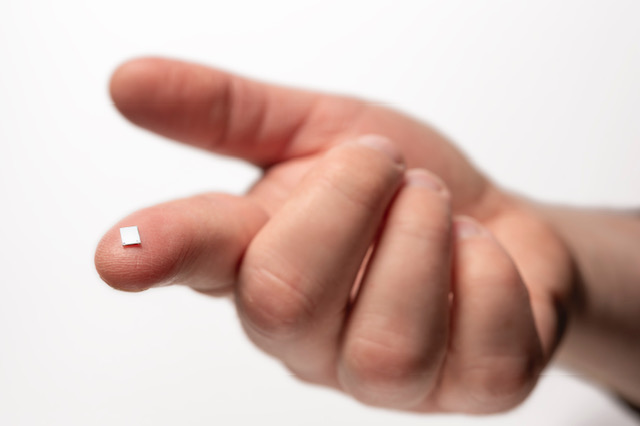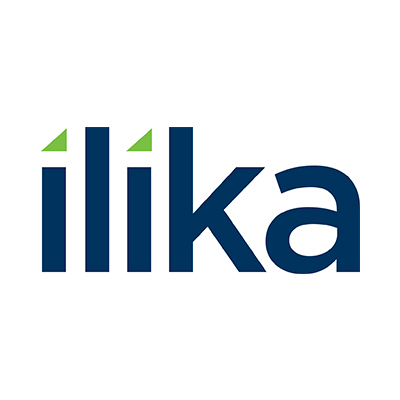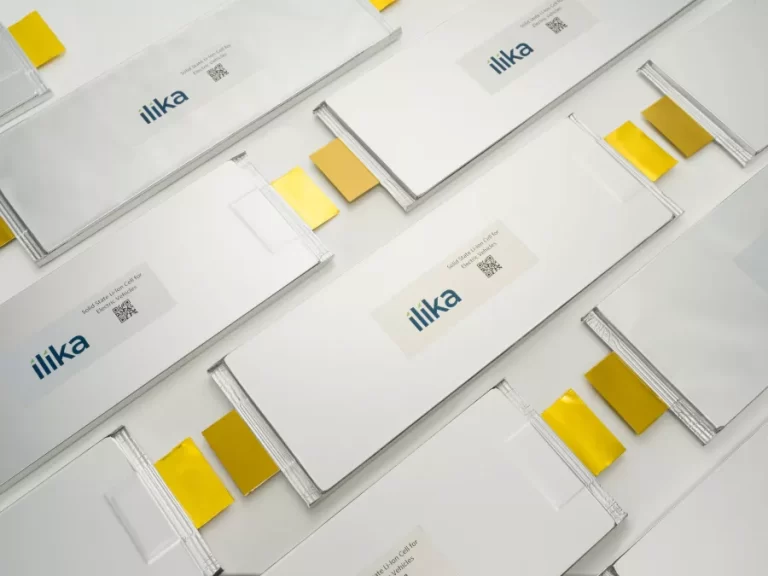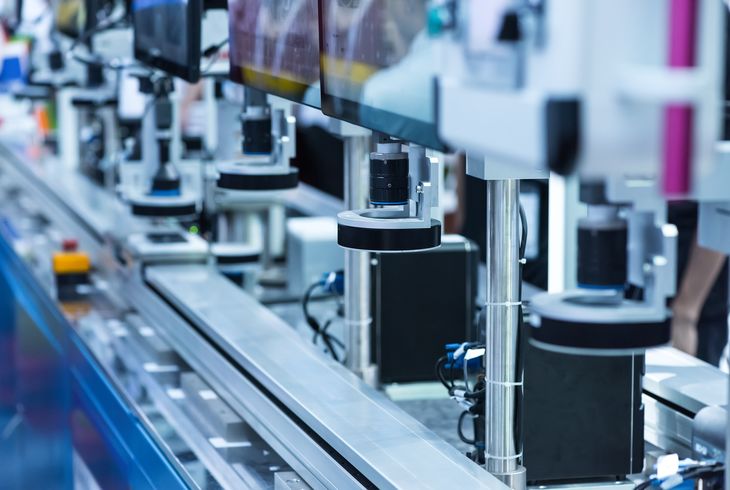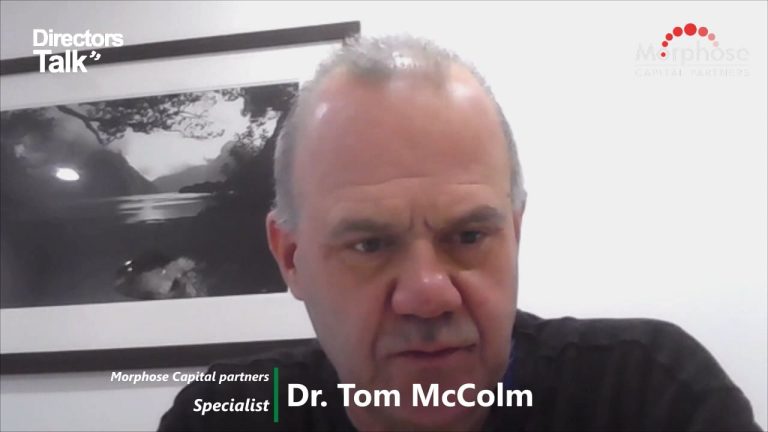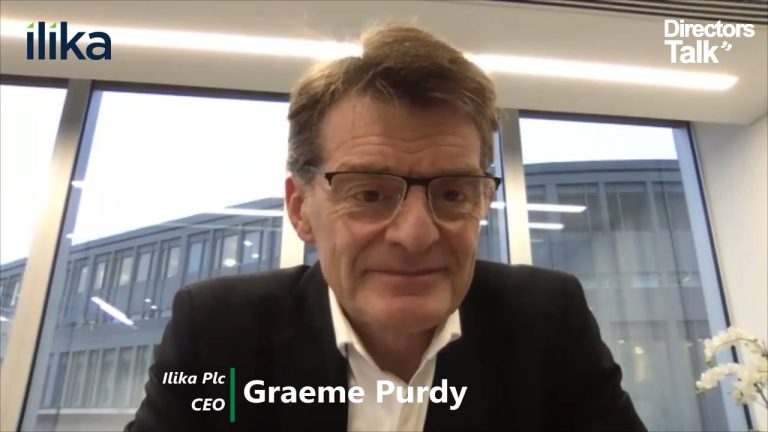Ilika plc (LON:IKA) Chief Executive Officer Graeme Purdy caught up with DirectorsTalk for an exclusive interview to discuss their Stereax tech transfer, process qualification, commercial demand, how the £24 million will be deployed, the scale up risk for Goliath and succeeding against well-funded competitors.
Q1: Could you give us an overview of the progress that you’re making with your Stereax tech transfer to your fab?
A1: Well, it’s been a very intense year of tech transfer.
We have moved our technology from our pilot line where we’ve been making small quantities of Stereax cells for release to customers over the past few years and we had a successful implementation of our new fab actually in what was a very challenging year in terms of disruption to the supply chain globally.
Our vendors and contractors have done very well in delivering the facility and in December of 2021, we had the official opening of the facility by our local MP, Steve Brine and since then we’ve been qualifying the process, getting ready for scale up and production.
Q2: Now, the Stereax process qualification has taken longer than you anticipated last year. What were the challenges?
A2: Yes, that’s right. We were hoping that we would be able to follow the legendary Intel mantra of copy exactly in order to implement our process at the fab. Of course we had the benchmark process conditions from our pilot line that we were able to refer to, but of course, in order to get the advantages of scale, we had to re-engineer some of the process steps in order to deploy larger scale equipment which was capable of giving a higher throughput of production.
Unfortunately we found that one of the steps, which is our reactive evaporative deposition step, which is the step that we use actually for making our cathode material, so our positive electrodes in the batteries, the equipment that we’d specified didn’t use the same process conditions as those that we’d use successfully on the pilot line. So by that, I mean, things like the pressure, temperature and deposition rates of the sources that that piece of equipment uses.
So, we ended up having to run a design of experiments, or a DOE as it’s referred to, in order to define the operating window so that we could get the quality of products that we were looking for.
Q3: How confident are you in the commercial demand for Stereax?
A3: Commercial demand is very strong. We have a portfolio of customers who are waiting, some of them patiently, some of them impatiently understandably, for delivery of the product and they all have their own product development programmes that they’re looking to feed our batteries into. So, we need to make sure that we try and synchronise our production activities as closely as possible to their needs.
A lot of our customers are in the miniature medical implant space so there’s some very interesting applications there, a lot of them with very high volumes in the mass market. What we need to do is work together with them in order to ramp up production over the coming years, across that portfolio, in order to get to the mass market volumes ultimately that the markets are going to demand.
The idea is that actually we use our mid-scale fab that we’ve got here in the UK in order to support the early years of product approval, through pre-clinical activities and then into clinical trials and approval and initial product launch. Because a lot of the applications actually involve selling into markets that even individually are larger than the full capacity of our fab, there will be another tech transfer step either directly to the OEM or to one of their outsource partners in order to be able to sustain the ramp up beyond what the capacity of our fab is.
Q4: Last year you raised £24 million to support the Goliath EV battery programme. How are you deploying those funds?
A4: We said at the time, actually that about £5 million of those funds was going to be used for equipment in order to automate the pre-pilot line that we’ve got at our Goliath development facility. About £10 million would be used for supporting the further development of the Goliath product so effectively paying for the R&D team and the expenses that they incur and that’s what we’re doing.
We’re very much following that investment programme and progress has been very gratifying, actually we can see ourselves moving up the development curve, moving up the S curve in terms of energy density and power density for Goliath.
So, that feels very much on track.
Q5: Just talking about curves, how are you managing the scale up risk for Goliath?
A5: So, there are some proprietary elements to the process that we’re using for Goliath, that’s got good and bad aspects. The good aspects are that it differentiates us, it gives us some IP that’s different from commoditised products, but the downside is that there is some technical risk associated with that proprietary approach.
For Goliath, the way that we’re addressing that is that we’re running a series of programmes which actually are being supported by grant funding, primarily from the Advanced Proportion Centre or APC, in order to address things like process design, the formation design. A formation is where you take the finished cells and you actually cycle them a few times so that you get a stabilised performance. That’s one of the intrinsic advantages of solid state is that actually the amount of cycling that you need to form the cells is reduced and that’s got a fantastic benefit in terms of reduced CapEx and reduced operating costs in terms of energy and work in progress. So, you need a smaller inventory of cells in your production facility.
What we’re also doing is looking specifically at the UK BIC, we’ve got a programme that we’ve just started with them, that’s the Battery Industrialisation Centre. That programme is called Bus 100, which is all about looking at the specific economics of battery manufacture at their facility, making sure that we can make the initial quantities of cells at a price point that makes sense for us all.
Finally, we’ve got a programme that’ll be starting soon which is more involved in vendor equipment demonstration and de-risking some of the designs that we are implementing in order to scale up manufacturing.
Q6: Now, the space it’s very competitive, can Ilika realistically succeed against very well-funded competitors?
A6: It’s true that in particular, some of the technology development companies in the US are very well funded, they’ve raised significantly more capital than we have over the years. However, I don’t think this is a ‘winner takes all’ scenario, there’s plenty of data from the existing battery sector that demonstrates there’s a variety of solutions that are used in different applications.
So, we think we’re still in the race, we’ve got some very well differentiated and competitive ideas around solid state and our prototype cells are offering all sorts of benefits from an ease of manufacture perspective and a cost perspective. I think that our solution will be very much attractive to OEMs and the sector, and that’ll be reflected in some of the partnering news flow that we introduce in the future.


